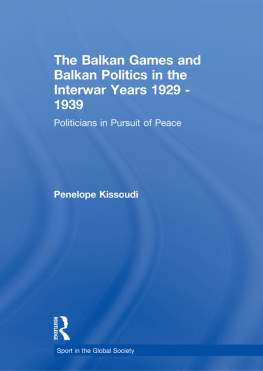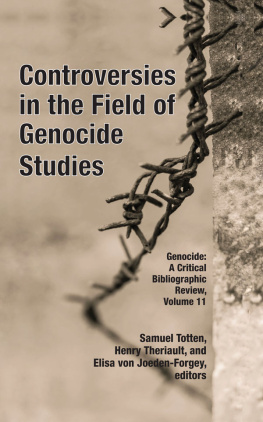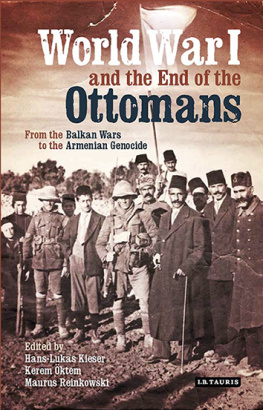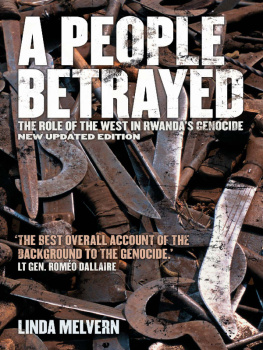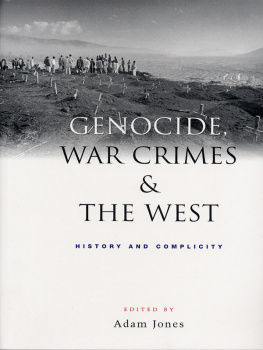GENOCIDE AFTER EMOTION
The failure of the major Western superpowers to adequately respond to the genocide in the Balkan Wars constitutes a major moral and political scandal. Genocide After Emotion offers a new sociological concept, post-emotionalism, as an explanation for this confused response of the West. Offered as an alternative to postmodernism, postemotionalism refers to the culture industry's manipulation of emotionally charged historical events and phenomena to create the puzzling international interplay of images and other collective representations pertaining to the current Balkan War.
Genocide After Emotion debunks and demystifies the postemotional perception of the current Balkan War. It documents:
- How and why the Croat-Serb war of 1991 really began.
- What a rational, non-postemotional solution to this Balkan crisis would be.
- The bias in the American media's presentation of the current Balkan War.
- Belgrade's psychological, financial and social preparation of war that began with the demise of communism.
- The irrationalities of the United States, British and French policies toward the Balkans.
- That Britain has learned from the Balkan Crises of 1876 to support the strongest force in any Balkan dispute regardless of whose position is just.
- How Italy has succeeded in glossing over is fascist past, being admitted into the community of civilized nations whilst Croatia has failed to overcome its Ustasha episode.
- Israeli media sympathy for Serbia in the context of the meaning of the Holocaust for Israeli society.
The book contains contributions by Philip J. Cohen, Norman Cigar, Slaven Letica, James J. Sadkovich, C. G. Schoenfeld, Thomas Cushman and Igor Primoratz.
Stjepan G. Metrovi is Professor of Sociology at Texas A&M University.
GENOCIDE AFTER EMOTION
The Postemotional Balkan War
Edited by Stjepan G. Metrovi
First published 1996
by Routledge
2 Park Square, Milton Park, Abingdon, Oxon, OX14 4RN
Transferred to Digital Printing 2005
Simultaneously published in the USA and Canada
by Routledge
270 Madison Ave, New York NY 10016
1996 The collection, Stjepan G. Metrovi; individual chapters, the contributors.
Typeset in Garamond by LaserScript, Mitcham, Surrey
All rights reserved. No part of this book may be reprinted or reproduced or utilized in any form or by any electronic, mechanical, or other means, now known or hereafter invented, including photocopying and recording, or in any information storage and retrieval system, without permission in writing from the publishers.
British Library Cataloguing in Publication Data
A catalogue record for this book is available from the British Library
Library of Congress Cataloging in Publication Data
A catalogue record for this book has been requested
ISBN 0415122937 (hbk)
ISBN 0415122945 (pbk)
To my mother
CONTENTS
Stjepan G. Metrovi
Philip J. Cohen
Norman Cigar
Slaven Letica
James J. Sadkovich
C. G. Schoenfeld
Thomas Cushman
Igor Primoratz
Stjepan G. Metrovi is Professor of Sociology at Texas A&M University. His other books on the current Balkan War are Road From Paradise (1993), Habits of the Balkan Heart (1993) and The Balkanization of the West (1994).
Philip J. Cohen, MD, was drawn toward the former Yugoslavia by the deeply disturbing rhetoric emanating from Belgrade that all Serbs must live in one country, an idea reminiscent of Nazi rhetoric of 1938. His book, Serbia at War With History is being published by Texas A&M University (1996).
Norman Cigar was educated at Oxford University and is Professor of National Security Studies at the US Marine Corps School of Advanced Warfighting in Quantico, Virginia. His most recent book is Genocide in Bosnia: The Policy of Ethnic Cleansing (1995).
Slaven Letica is Professor and Head of the Department of Medical Sociology and Health Economics at the University of Zagreb Medical School. Author of numerous articles on the current Balkan War, his books include The Fourth Yugoslavia (1991) and Intellectuals and Crisis (1992).
James J. Sadkovich is Associate Professor of History at the American University in Bulgaria. He is widely published in scholarly journals on the topics of fascism and the history of World War II.
C. G. Schoenfeld has a BA from Yale University, an LLB from the Harvard Law School, and an LLM from New York University. He is the Book Section editor of the Journal of Psychiatry and Law and is a frequent contributor to various legal and psychiatric journals. He is the author of Psychoanalysis and the Law (1973) and of Psychoanalysis Applied to the Law (1984).
Thomas Cushman is Associate Professor and Chair of Sociology at Wellesley College and a Fellow of the Harvard Russian Research Center. He is the author, most recently, of Notes From Underground: Rock Music Counterculture in Russia (1995) and is currently at work on a book which explores the political involvement of physicians in postcommunist Croatia.
Igor Primoratz is Associate Professor of Philosophy at the Hebrew University in Jerusalem. In the 1970s and early 1980s he taught at the University of Belgrade. His published work includes Banquo's Geist. Hegels Theorie der Strafe (1986) and Justifying Legal Punishment (1989).
In my Balkanization of the West, published by Routledge in 1994, I argued that ominous signs exist suggesting that despite the rhetoric of democracy and capitalism spreading to the former communist world, the rest of the world will become Balkanized, e.g., it will splinter into ever-smaller units that are hostile to each other. The present volume may be read as an extension of this argument. Illustrative examples abound, from the Oklahoma City bombing in the United States of America on 20 April 1995, which uncovered widespread hatred of the federal government, to the divisions and fractures within the United Nations, the European Community, the North American Free Trade Agreement (NAFTA) countries, and many other units that were supposed to foster globalization and free markets. In the present volume, I introduce the theoretical concept, postemotionalism, in order to begin to remedy the failure of the most recent social theory, postmodernism, to account for these disturbing developments. Postmodernism promised tolerance and a salad-bowl model of multicultural diversity that was supposed to replace modernist assimilation, but ethnic strife, not tolerance, seems to be increasing in the 1990s. Postmodernism reduced the world to a cognitive text of rational media images, but failed to account for the power of emotions. Most important, postmodernism has vanquished Enlightenment-based rationalism and left democracy without secure philosophical foundations. The net result of these developments has been that since the end of the cold war, genocide in the former Yugoslavia has been continuing in full view of the enlightened, informed, democratic nation-states. These democracies and their many security arrangements seem impotent in the face of the genocide in the former Yugoslavia. As a result, a cultural climate has been established in which ethnic strife and genocide are becoming increasingly more likely world-wide, and especially in the former Soviet Union.



